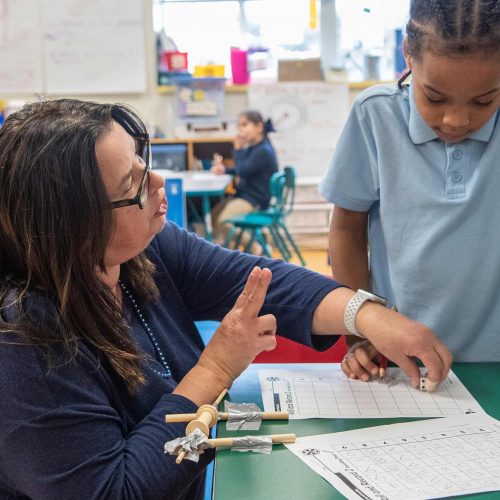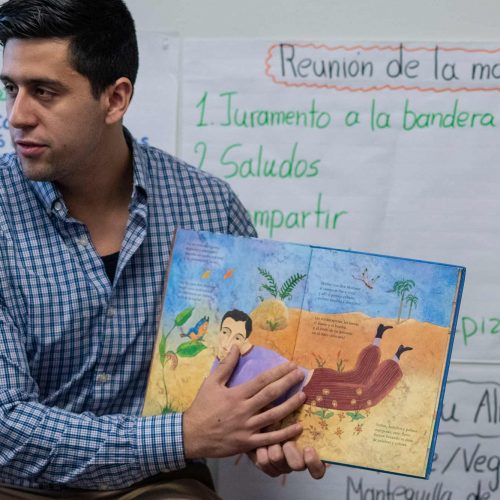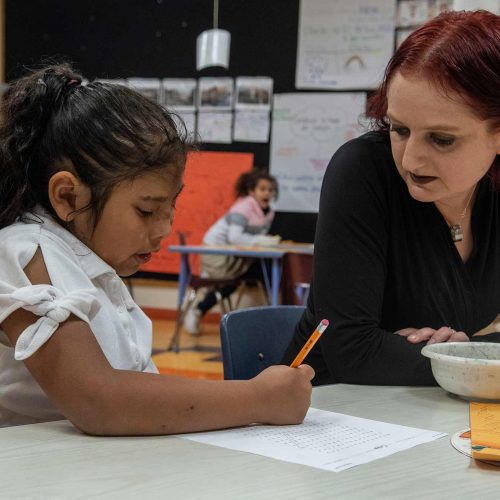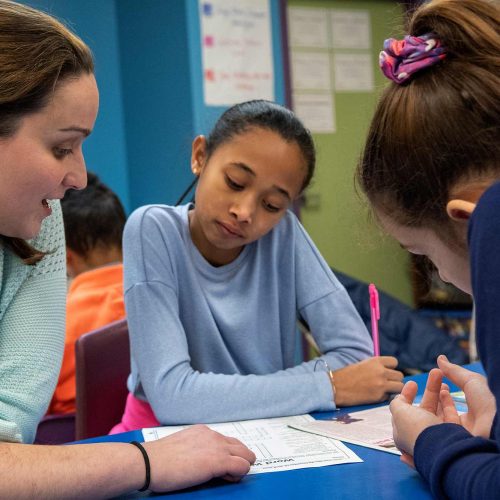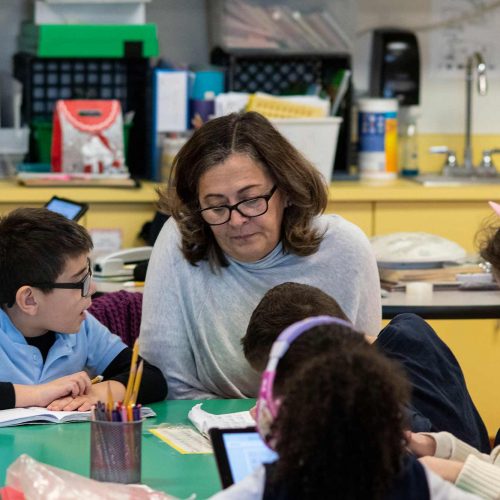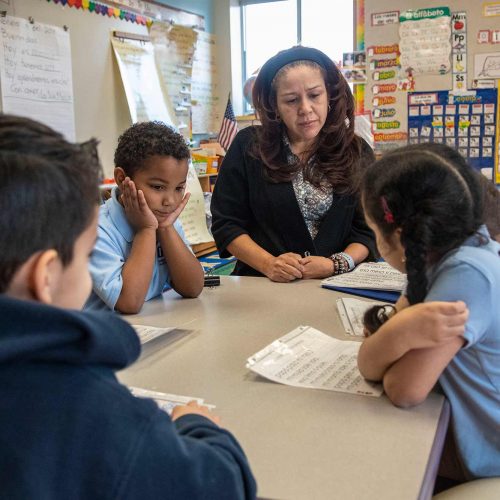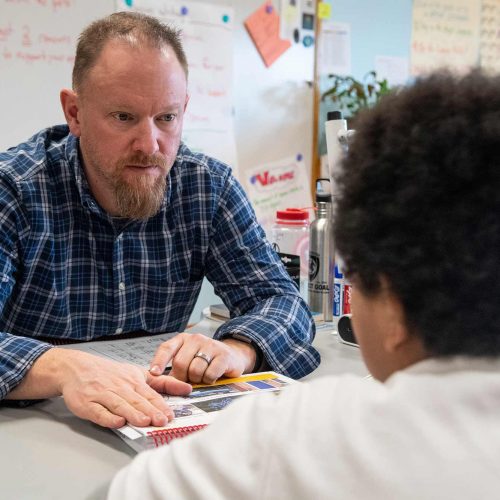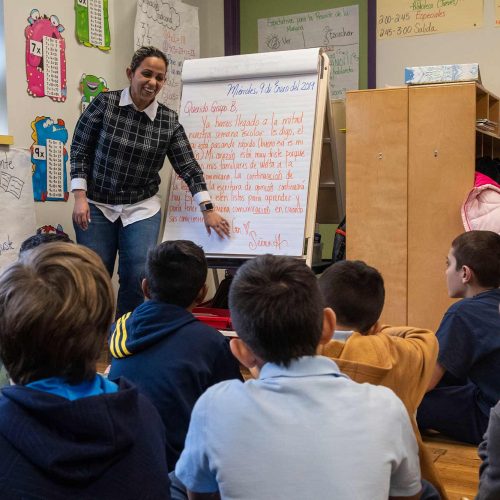Dual-Language Education
The International Charter School is a nationally recognized leader in bilingual education.
Offering a choice of two language strands: Spanish/English and Portuguese/English, we use a 50/50 dual-language education model in which students spend 50% of their day studying in English and 50% of their day studying in either Spanish or Portuguese.
Students alternate learning in two languages between morning and afternoon instruction each week or by unit.
Academic instruction occurs in both languages.
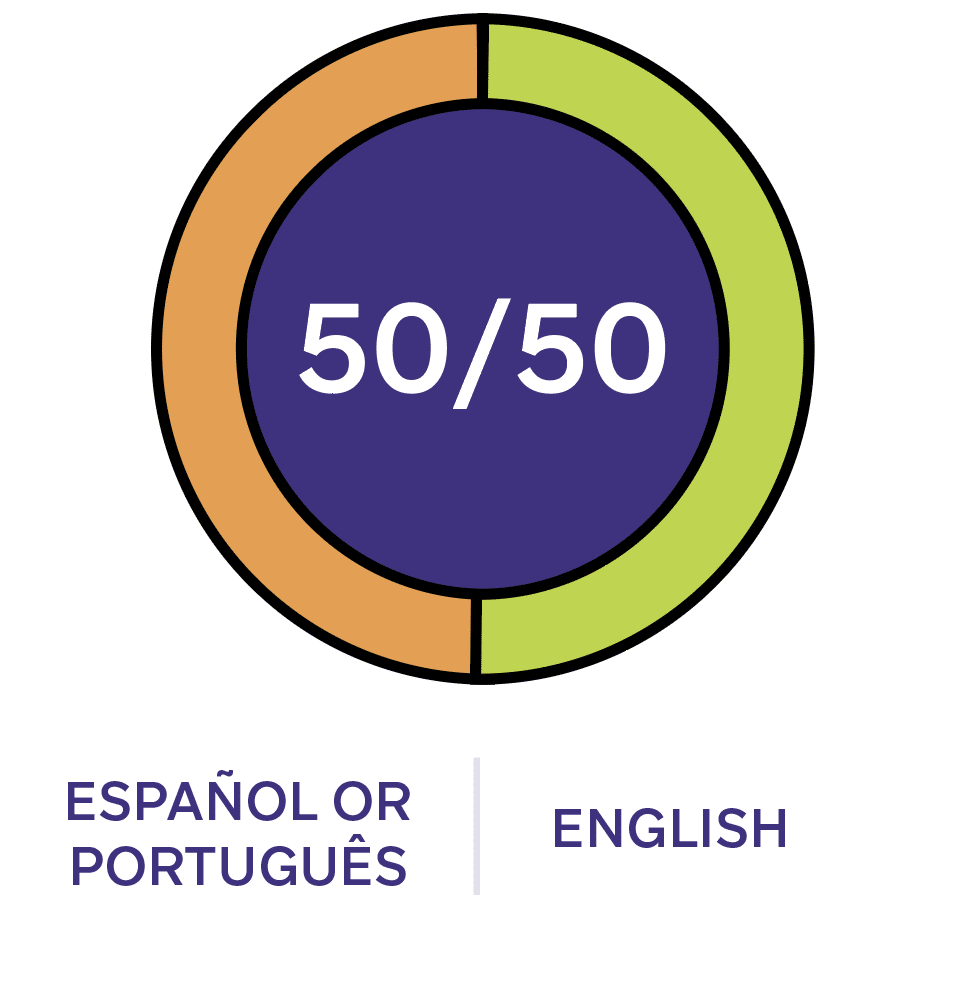
Dual-Language Education
Integrating the language instruction with academics is more effective than teaching language in isolation. This approach enables students to simultaneously develop content area knowledge in language arts, math, science, and social studies along with proficiency in both languages. Teachers provide extended opportunities for classroom discourse in the target language.
Classrooms are mixed with native speakers of both English and Spanish or Portuguese. This balance creates an “additive” environment where all students have the opportunity to learn another language while continuing to develop their native language.
Fundamental to our dual-language education model is an “asset” orientation, which allows teachers to build on the home language of the students and recognize them as a fundamental strength to the student’s learning and that of their peers.
Language Arts
At ICS, we take a balanced approach to literacy instruction to help students meet both the Common Core State Standards (CCSS) for ELA/Literacy and language learning objectives.
Students engage in learning comprehensive reading and writing strategies. They receive large-and small-group instruction at their level, as well as individual and group conferencing with teachers.
Mathematics
Students at ICS are expected to meet the CCSS in Mathematics, a clear set of skills and concepts that students need to be successful in college, career, and life.
Science
ICS students learn about science through hands-on activities that are focused on a variety of areas of science: physical science, earth science, life science, and scientific inquiry. Science units are focused on helping students meet the Next Generation Science Standards (NGSS).
Social Studies
Social Studies lessons are designed to meet the expectations of the College, Career and Civic Life (C3) Framework for Social Studies State Standards and Rhode Island Social Studies Framework.
